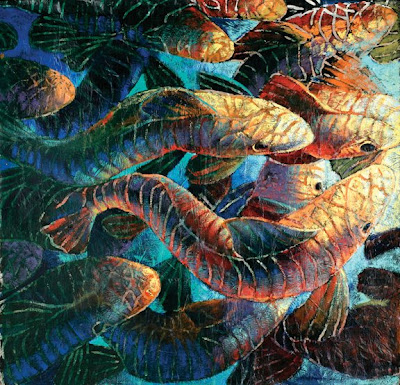
No, Seriously: Republicans Don't Get It
Rep. Earl Blumenauer (OR)
With this latest attempt to strip bike funding from the recovery bill, Republicans have once again demonstrated how out of touch they are with their pathologically short-sighted attacks on bicycles. To their detriment, they are continuing their trend from last Congress of using the most economical, energy-efficient, and healthy forms of transportation as their whipping post. Investment in bike paths will not only improve our economy, and take our country in the right direction for the future; it is exactly the kind of investment the American people want.
Moreover, bicycle and pedestrian paths are precisely the kind of infrastructure projects our country needs. These projects tend to the most "shovel-ready" and are more labor-intensive than other projects-- therefore putting more people to work per dollar spent.
We might have understood these attacks a decade ago, but today they ignore the explosion of bicycling in this country in recent years that has been nothing short of phenomenal. There are tens of millions of American cyclists and even more who want their children to be able to bike and walk to school safely and therefore support bicycle and pedestrian infrastructure projects.
American families have indicated time and again in the passage of bond measures across the country that they favor spending on alternative transportation, such as bicycles and mass transit, over spending on mere highway capacity. Americans want real solutions to the economic crisis, not just a band-aid fix. These investments will stimulate our economy now - when it counts and point our nation toward the economic and environmental realities of the future.
Recent transportation surveys indicate that 52% of Americans want to bike more than they do now - but don't, because of the lack of safe and connected bicycle facilities.
Think about it: More than 50% of working Americans live less than 5 miles from work, an easy bicycle commute. Already more than 490,000 Americans bike to work; in Portland, 8% of downtown workers are bicycle commuters. Individually, they are saving $1,825 in auto-related costs, reducing their carbon emissions by 128 pounds per year, saving 145 gallons of gasoline, avoiding 50 hours of being stuck in traffic, burning 9,000 calories, reducing their risk of heart attack and stroke by 50%, and enjoying 14% fewer claims on their health insurance.
Nationally, if we doubled the current 1% of all trips by bike to 2%, we would collectively save more 693 million gallons of gasoline - that's more than $5 billion dollars - each year. From 2007 - 2008, bicyclists reduced the amount Americans drive by 100 million miles.
Bicycling also has immediate and direct benefits for communities that invest in bicycle paths, bike lanes, trails, and secure bicycle parking. For each $1 million invested in an FHWA-approved paved bicycle or multi-use trail, the local economy gains 65 jobs and between $50 and $100 million in local economic benefits. Some communities are already showing the results of these investments. After investing less than 1% of their total transportation budget in bicycle facilities in the past eight years, the City of Portland has seen a 144% increase in bicycle use - and the growth of a $90 million bicycle industry that has added nearly 50 new businesses in just the past two years.
I can think of no other transportation investment that provides more benefits to American communities who so desperately need: more jobs, reduced transportation costs, increased personal health, a cleaner environment, reduced carbon footprint, and greater community livability. It's time the Republicans got the point about what Americans want. Investments in bike and pedestrian infrastructure will help us create jobs and build healthier more livable communities for the future - these projects are the gifts that keep on giving.
(
via)



.jpg)




















